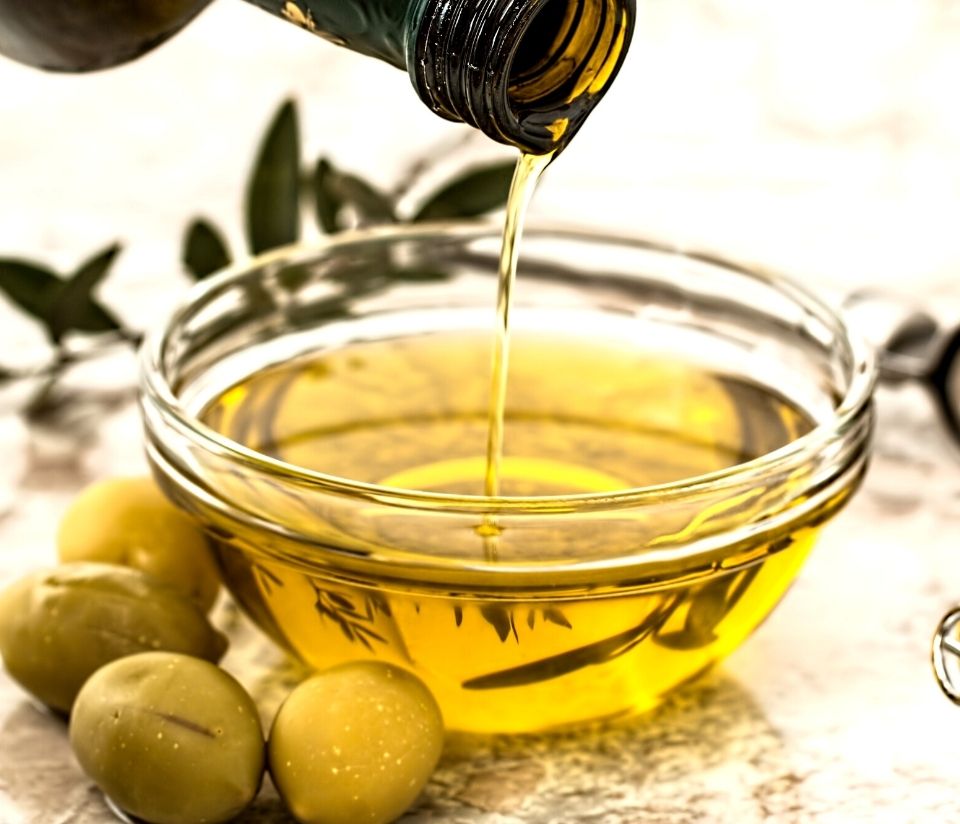
Ethical Cooking Oil
Which Cooking Oil brands are the most ethical and sustainable? For the answer, see our Ethical Cooking Oil Ratings Table to compare brands’ ethical scores.
The different types of cooking oil and their ethical concerns
Cooking oil an essential ingredient in home cooking. It’s probably something we’re all buying every few weeks. We should all therefore ensure that we purchase sustainable products from ethical cooking oil brands. This article will explore the ethical benefits of each option and identify the best cooking oil products for you.
Cooking oil and the use of pesticides
It is important to note that the use of chemicals in non-organic farming is a concern for all cooking oils. Pesticides and herbicides pose a risk to bees and can pollute water sources, ultimately disrupting important ecosystems. We therefore recommend purchasing organic cooking oil, whether its organic olive oil, organic coconut oil, or other organic options.
Due to its bold flavours, olive oil is one of the most popular types of cooking oil. Unfortunately, as olives cannot be grown in the UK, we have no choice but to rely on imports for our olive oil consumption. According to statistics from the European Union, 95% of olive trees in the world grow in the Mediterranean region, which is why most of our olive oil comes from countries like Spain, Italy, and Greece. This means that the carbon footprint associated with olive oil transportation is unavoidable unless you choose not to purchase it at all.
Rapeseed oil is also a popular choice for cooking oil. Rapeseed oil is a great option for buying local, as much of it is grown and produced within the UK. However, organic rapeseed oil is trickier to find than organic coconut oil or organic olive oil.
Coconut oil and monkey labour
Coconut oil is another cooking oil that is growing in popularity. However, there is a particularly unethical practice that occurs with the production of coconut oil that you may not be aware of.
National Geographic reports that in Thailand- one of the world’s largest coconut producers- monkey labour is being used to supply coconuts to international brands. Monkeys, such as the pig-tailed macaque, are trained to climb trees and pick coconuts, whilst being kept in chains and cages under severe stress.
Monkeys can pick coconuts a lot faster than humans and do not need to be paid wages, so coconut producers exploit them for cheap and easy labour. We believe it is unacceptable to abuse animals for profit, so we recommend avoiding brands that use monkey labour to supply their coconuts. PETA has a list of companies that oppose monkey labour.
The ethical issues within the cooking oil sector may seem overwhelming, but don’t worry! Our Ethical Cooking Oil Rating Table provides you with all the information you need to choose from an ethical cooking oil brand. The companies listed in the green section of our tables offer a wide range of ethical options, including organic olive oil, organic coconut oil, and organic rapeseed oil.

Our research: cooking oil brands to avoid
Our latest research shows the number of brands offering options for organic cooking oil, which includes organic olive oil and organic coconut oil. Out of 30 brands assessed, we found 17 brands to be selling at least one organic product. To find these products, such as organic olive oil and organic coconut oil, look for brands in our table with a top rating under the Organic category.
However, there are some cooking oil brands that are still engaging in unethical activities, particularly if they are owned by a controversial parent company. For instance, the olive oil brand Filippo Berio is a unique case. The Chinese government owns a majority share in this olive oil brand. The Chinese government has been criticised for its human rights abuses and poor environmental practices. Filippo Berio has therefore been marked down in our research under Public Record Criticisms.
Our advice for buying the most ethical cooking oil: Organic olive oil, organic coconut oil, and more
Consider other cooking oil options. Avocado oil, sesame seed oil, and hemp oil are also available from some of the ethical brands in our table.
If you are looking for organic olive oil or organic rapeseed oil, there are several ethical brands within our table to choose from, including Mr Organic and Clearspring. Zaytoun in particular is a great brand to purchase from, as it offers organic olive oil that is also certified by the Fairtrade Foundation! Additionally, for organic coconut oil, TIANA and The Groovy Food Company are good ethical options.
See our Ethical Cooking Oil Ratings Table to compare brands
Some of the most popular cooking oil brands are represented on our Ethical Ratings Tables. You can find out even more information about individual cooking oil brands by clicking on a brand name below, and reading in-depth articles about specific brands’ ethics and sustainability efforts.
Suma, Clearspring, Mr Organic, Equal Exchange, The Groovy Food Company, Zaytoun, Farrington’s Mellow Yellow, Organico, TIANA, Biona, Nutiva, Farchioni, KTC, Olivado, Good Hemp, Vita Coco, Bodrum, Borderfields, Belazu, Bio Orto, Carapelli, Fry Light, Fussels, Hillfarm, Odysea, La Española, Olivio, Filippo Berio, Mazola, Flora, Napolina, Crisp ‘n Dry and U:ME.